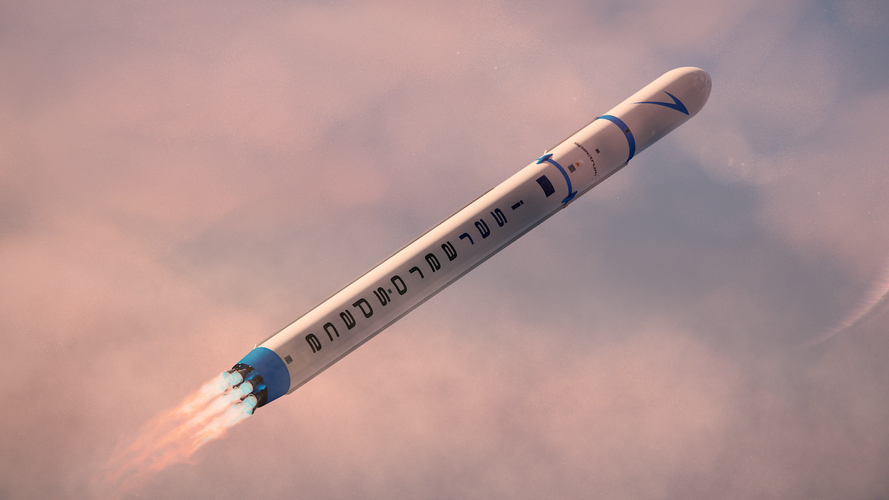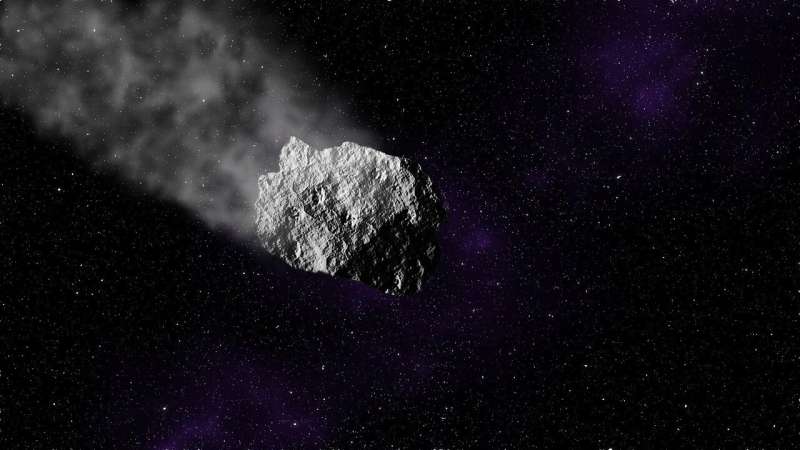
Copernical Team
Astra launch reaches orbit, cheers investors
 The stock price for small-rocket company Astra Space, of California, rose more than 30% at one point Monday after the firm reached orbit for the first time over the weekend, carrying a U.S. Space Force test payload from Alaska.
The Astra Rocket 3 was only the seventh one built by the company based in Alameda, near San Francisco. Astra Space now joins the small number of commercial orbit
The stock price for small-rocket company Astra Space, of California, rose more than 30% at one point Monday after the firm reached orbit for the first time over the weekend, carrying a U.S. Space Force test payload from Alaska.
The Astra Rocket 3 was only the seventh one built by the company based in Alameda, near San Francisco. Astra Space now joins the small number of commercial orbit Space telescope launch delayed after site incident
 The launch of the James Webb Space Telescope, which astronomers hope will herald a new era of discovery, has been delayed until December 22 after an accident at its launch facility in French Guiana, NASA said Monday.
Technicians were preparing to attach the $10 billion observatory to a launch vehicle adapter, used to fix it to the upper stage of an Ariane 5 rocket.
"A sudden, unplanned r
The launch of the James Webb Space Telescope, which astronomers hope will herald a new era of discovery, has been delayed until December 22 after an accident at its launch facility in French Guiana, NASA said Monday.
Technicians were preparing to attach the $10 billion observatory to a launch vehicle adapter, used to fix it to the upper stage of an Ariane 5 rocket.
"A sudden, unplanned r Fission System to power exploration on the Moon's surface and beyond
 Exploration of the Moon and Mars requires the power of human imagination and vision. It also takes the power of electricity to bring science and technology to life when astronauts land and stay on the surface.
NASA has plans for a robust presence on the Moon under Artemis and eventually Mars, including the development of a fission surface power system for safe, efficient, and reliable elec
Exploration of the Moon and Mars requires the power of human imagination and vision. It also takes the power of electricity to bring science and technology to life when astronauts land and stay on the surface.
NASA has plans for a robust presence on the Moon under Artemis and eventually Mars, including the development of a fission surface power system for safe, efficient, and reliable elec Pulsar demonstrates green, high power rocket engine
 Pulsar Fusion Ltd, a UK nuclear fusion company based in Bletchley, has just developed and tested its first launch capable, high-power chemical rocket engine in the UK.
These rocket engines could be used for a variety of applications, including launching people and satellites into space.
This successful set of test firings showcases the rapid design development and test process of hig
Pulsar Fusion Ltd, a UK nuclear fusion company based in Bletchley, has just developed and tested its first launch capable, high-power chemical rocket engine in the UK.
These rocket engines could be used for a variety of applications, including launching people and satellites into space.
This successful set of test firings showcases the rapid design development and test process of hig DARPA focusing on biomanufacturing to B-SURE
 The DoD has a role in orbital and lunar missions as defined by the US Space Force (USSF) Space Capstone Publication. In this document, USSF notes the "inherent value of the space domain and the tremendous influence space has on U.S. prosperity and security." There is a critical DoD need for the continued development and future expansion of orbital manufacturing to enable and ensure supply chain
The DoD has a role in orbital and lunar missions as defined by the US Space Force (USSF) Space Capstone Publication. In this document, USSF notes the "inherent value of the space domain and the tremendous influence space has on U.S. prosperity and security." There is a critical DoD need for the continued development and future expansion of orbital manufacturing to enable and ensure supply chain Russia creates debris field near ISS
NASA's DART asteroid collision mission nears launch
 NASA is set to launch a spacecraft from California on Tuesday night to smack head on into an asteroid next fall in an effort to understand how humanity could prevent such a space body from colliding with Earth.
Elon Musk's SpaceX plans to launch the DART mission, or Double Asteroid Redirection Test, on a Falcon 9 rocket from Vandenberg Space Force Base at 10:20 p.m. PST.
The spac
NASA is set to launch a spacecraft from California on Tuesday night to smack head on into an asteroid next fall in an effort to understand how humanity could prevent such a space body from colliding with Earth.
Elon Musk's SpaceX plans to launch the DART mission, or Double Asteroid Redirection Test, on a Falcon 9 rocket from Vandenberg Space Force Base at 10:20 p.m. PST.
The spac Mars helicopter Ingenuity completes 16th flight
 NASA's Mars helicopter Ingenuity completed its 16th flight over the weekend, the space agency announced Monday.
The NASA Jet Propulsion Laboratory said the helicopter captured color images of Mars' surface during the flight, which saw it travel 116 meters northeast for 109 seconds.
"Mars helicopter continues to thrive!" the lab wrote on Twitter.
The 16th flight over seven
NASA's Mars helicopter Ingenuity completed its 16th flight over the weekend, the space agency announced Monday.
The NASA Jet Propulsion Laboratory said the helicopter captured color images of Mars' surface during the flight, which saw it travel 116 meters northeast for 109 seconds.
"Mars helicopter continues to thrive!" the lab wrote on Twitter.
The 16th flight over seven ESA Boost! contract for flight demonstration of Spectrum launch vehicle

Small and medium satellites can expect new launch opportunities on the Spectrum launch vehicle thanks to an ESA Boost! co-funding contract worth €11 m with Isar Aerospace Technologies in Germany.
Double Asteroid Redirection Test launch could be key step forward in planetary defense

NASA's latest launch into outer space is going to make an impact. In fact, that's its entire mission.
DART (Double Asteroid Redirection Test), which is scheduled to launch at 10:20 p.m. PST on Nov. 23 out of Vandenberg Air Force Base in California, is NASA's first planetary defense mission. This mission will demonstrate asteroid deflection via kinetic impact. The goal is to collide with the target to see how the orbit changes. It's a test run to see if such a plan is feasible should we find an asteroid on a collision course with Earth one day.
Cristina Thomas, an assistant professor of astronomy and planetary sciences at Northern Arizona University and lead of the DART Observations Working Group, is excited to see the effects of the impact. She and her international team have been working for years to obtain a precise pre-impact orbit of Dimorphos, the satellite asteroid, around Didymos, the primary asteroid in a near-Earth asteroid system.
Near-Earth, of course, is relative; the planet is in no danger from Didymos. However, an asteroid heading toward Earth is possible, and scientists throughout the world are working on ways to identify these potential threats and how to mitigate them.

